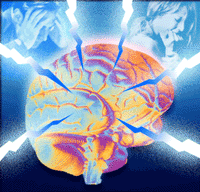Author: Ironic
Posted: Thu Sep 29, 2011 7:34 pm
For those of you who feel clean, that is really nice.
However, NA does not agree with you.
WORLD SERVICE BOARD OF TRUSTEES BULLETIN #29
Regarding Methadone and Other
Drug Replacement Programs
This bulletin was written by the World Service Board of Trustees in 1996. It represents the views of the board at the time of writing.
Not all of us come to our first NA meeting drug free. Some of us were uncertain about whether recovery was possible for us and initially came to meetings while still using.
Others came to their first meetings on drug replacement programs such as methadone and found it frightening to consider becoming abstinent.
One of the first things we heard was that NA is a program of complete abstinence and "The only requirement for membership is the desire to stop using." Some of us, upon hearing these statements, may have felt that we were not welcome at NA meetings until we were clean. But NA members reassured us that this was not the case and we were encouraged to "keep coming back." We were told that through listening to the experience, strength, and hope of other recovering addicts that we too could find freedom from active addiction if we did what they did.
Many of our members, however, have expressed concern about individuals on drug replacement programs. Questions come up regarding such individuals’ membership status, ability to share at meetings, lead meetings, or become trusted servants on any level. "Are these members clean?" they ask. "Can one really be a ‘member’ and still be using?"
Perhaps by answering the most important question first—the issue of membership—we can establish a context by which to approach this issue. Tradition Three says that the only requirement for NA membership is a desire to stop using. There are no exceptions to this. Desire itself establishes membership; nothing else matters, not even abstinence. It is up to the individual, no one else, to determine membership. Therefore, someone who is using and who has a desire to stop using, can be a member of NA.
Members on drug replacement programs such as methadone are encouraged to attend NA meetings. But, this raises the question: "Does NA have the right to limit members participation in meetings?" We believe so. While some groups choose to allow such members to share, it is also a common practice for NA groups to encourage these members (or any other addict who is still using), to participate only by listening and by talking with members after the meeting or during the break. This is not meant to alienate or embarrass; this is meant only to preserve an atmosphere of recovery in our meetings.
Our Fifth Tradition defines our groups’ purpose: to carry the message that any addict can stop using and find a new way to live. We carry that message at our recovery meetings, where those who have some experience with NA recovery can share about it, and those who need to hear about NA recovery can listen. When an individual under the influence of a drug attempts to speak on recovery in Narcotics Anonymous, it is our experience that a mixed, or confused message may be given to a newcomer (or any member, for that matter) For this reason, many groups believe it is inappropriate for these members to share at meetings of Narcotics Anonymous.
It may be argued that a group’s autonomy, as described in our Fourth Tradition, allows them to decide who may share at their meetings. However, while this is true, we believe that group autonomy does not justify allowing someone who is using to lead a meeting, be a speaker, or serve as a trusted servant. Group autonomy stands only until it affects other groups or NA as a whole. We believe it affects other groups and NA as a whole when we allow members who are not clean to be a speaker, chair a meeting, or be a trusted servant for NA.
Many groups have developed guidelines to ensure that an atmosphere of recovery is
maintained in their meetings. The following points are usually included:
Suggesting that those who have used any drug within the last twenty-four hours refrain from sharing, but encouraging them to get together with members during the break or after the meeting.
Abiding by our fellowship’s suggested clean time requirements for service positions.
Seeking meeting leaders, chairpersons, or speakers who help further our primary purpose of carrying the message to the addict who still suffers.
We make a distinction between drugs used by drug replacement programs and other prescribed drugs because such drugs are prescribed specifically as addiction treatment. Our program approaches recovery from addiction through abstinence, cautioning against the substitution of one drug for another. That’s our program; it’s what we offer the addict who still suffers. However, we have absolutely no opinion on methadone maintenance or any other program aimed at treating addiction. Our only purpose in addressing drug replacement and its use by our members is to define abstinence for ourselves.
Our fellowship must be mindful of what kind of message we are carrying if a still-using addict leads a meeting, or becomes a trusted servant. We believe that under these circumstances we would not be carrying the Narcotics Anonymous message of recovery. Permissiveness in this area is not consistent with our traditions. We believe our position on this issue reinforces our recovery, protects our meetings, and supports addicts in striving for total abstinence.
Note: This bulletin addresses the use of methadone maintenance as a drug replacement strategy. It is not addressing the medicinal use of methadone as a pain killer. We encourage those who have concerns about the use of methadone in pain management to refer to Narcotics Anonymous pamphlet, In Times of Illness.

